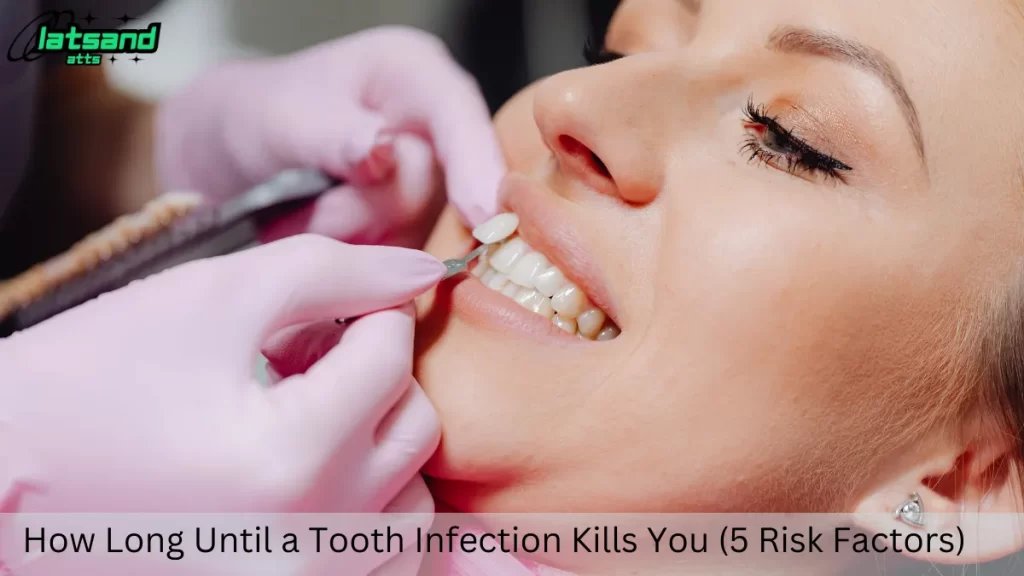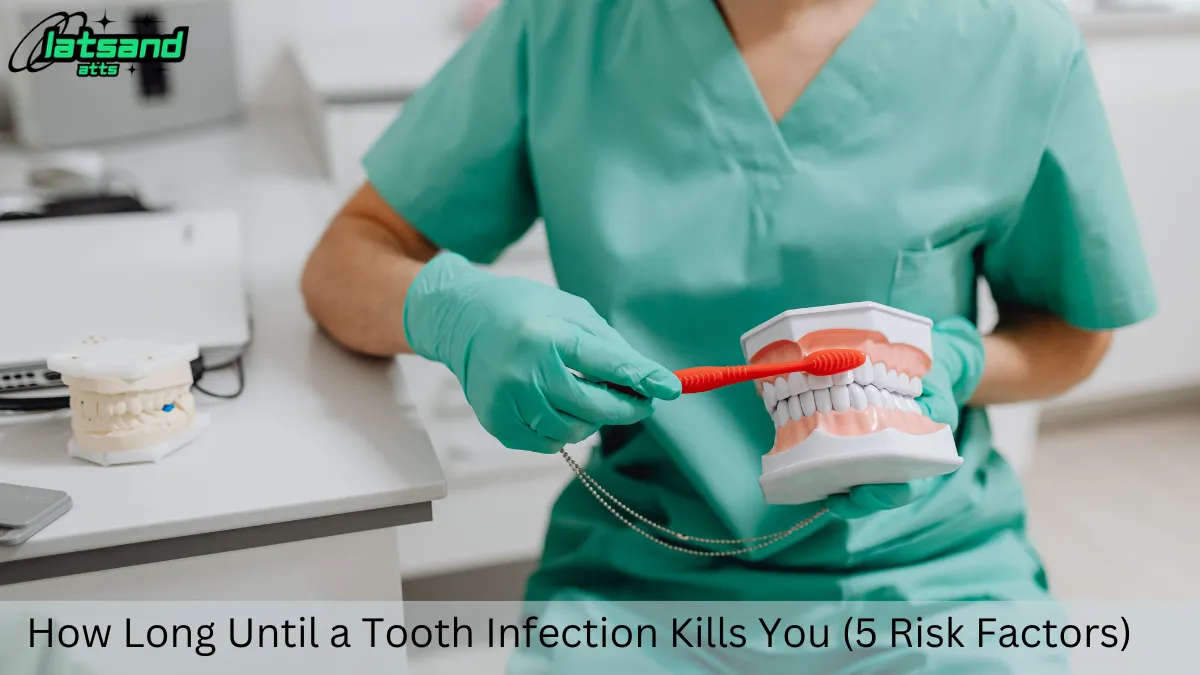Table of Contents
If you’ve ever wondered, “How long until a tooth infection kills you?” you’re not alone. Tooth infections are often dismissed as minor issues, but they can escalate into severe, life-threatening conditions if left untreated. The infection can spread to other body parts when bacteria enter the tooth and surrounding areas. In severe but rare cases, this can even lead to death. This article explores the critical risk factors that can speed up the danger, identify signs of a severe infection, and discuss when to seek urgent medical help.
What Happens During a Tooth Infection?

A tooth infection, also known as a dental abscess, occurs when bacteria invade the pulp (the inner part) of the tooth, leading to pus accumulation. The most common causes of a tooth infection are untreated cavities, gum disease, or trauma to the tooth. As the infection grows, it can spread to nearby tissues and the jawbone and, in severe cases, enter the bloodstream. This is where the risk escalates, as the infection can reach vital organs and cause life-threatening complications.
Also Read: Can You Keep Your Wisdom Teeth Without Pain?
How Long Until a Tooth Infection Kills You?
How long before a tooth infection kills you? The timeline varies widely. In most cases, a tooth infection doesn’t become fatal right away. However, an infection can spread rapidly within days or weeks if left untreated. The infection can lead to sepsis, a dangerous body-wide response to infection that requires immediate medical attention. Knowing the risk factors contributing to the speed and severity of infection is crucial for taking the proper steps to protect your health.
5 Risk Factors That Can Increase the Danger of a Tooth Infection
Certain factors can make a tooth infection more dangerous and accelerate its progression. Here are five critical risk factors to consider.
Weakened Immune System
A weakened immune system can significantly increase the risk of a tooth infection becoming life-threatening. Conditions like diabetes, HIV/AIDS, or even certain medications (such as chemotherapy drugs) can weaken your immune system, making it harder for your body to fight off infections.
- Why it matters: If your immune system is compromised, a tooth infection can spread more quickly, increasing the risk of severe complications.
- What to do: Individuals with weakened immunity should urgently treat tooth infections and consult a healthcare provider as soon as symptoms appear.
Lack of Dental Care
- Poor dental hygiene and a lack of regular checkups can lead to untreated cavities, gum disease, and infections. Ignoring minor dental problems can allow bacteria to multiply, increasing the likelihood of an abscess or infection.
- Why it matters: Without proper dental care, minor infections can grow, spread, and become difficult to treat, eventually turning into a life-threatening condition.
- What to do: Good oral hygiene, such as brushing, flossing, and regular dental visits, can prevent infections from occurring or catch them early before they spread.
Delay in Treatment
Many people ignore a toothache, thinking it will go away. However, delaying treatment can allow a tooth infection to worsen and spread to other areas, including the bloodstream, leading to sepsis.
- Why it matters: The longer an infection goes untreated, the more likely it is to spread to critical body parts, increasing the danger.
- What to do: Seek prompt treatment at the first sign of a tooth infection, such as pain, swelling, or pus, to avoid dangerous complications.
Infections Spreading to Nearby Areas
A tooth infection can spread to nearby areas, such as the jawbone, neck, and brain, quickly escalating into a life-threatening situation. Once the infection reaches areas like the brain or lungs, it can become fatal if not treated immediately.
- Why it matters: Infections that spread to vital areas can lead to severe complications, such as brain abscesses, Ludwig’s angina (a deep neck infection), or lung infections.
- What to do: Watch for symptoms like facial swelling, fever, difficulty swallowing, or difficulty breathing, and seek emergency medical help if these symptoms occur.
Chronic Health Conditions
Chronic health conditions like heart disease or respiratory issues can complicate a tooth infection. When the infection enters the bloodstream, it can affect other organs, putting extra strain on an already compromised body.
- Why it matters: In patients with chronic illnesses, an infection can have a more severe impact on overall health, increasing the chances of hospitalization or death.
- What to do: If you have a chronic health condition, address tooth pain or infection promptly and consult your dentist and physician for comprehensive care.
Also Read: How Long Until a Tooth Infection Kills You (5 Risk Factors)
Preventing Tooth Infections: Protect Your Health

The best way to avoid asking how long until a tooth infection kills you is by preventing infections in the first place. Here are some practical steps to keep your teeth and overall health in top shape:
- Maintain Good Oral Hygiene: Brush and floss daily to reduce the risk of bacteria buildup.
- Regular Dental Visits: Visit your dentist every six months for cleanings and checkups.
- Promptly Address Dental Issues: Don’t ignore cavities or gum disease; treating them early can prevent infections.
- Healthy Diet: Avoid excessive sugar and maintain a balanced diet for dental and immune health.
- Stay Hydrated: Drinking water helps cleanse your mouth and reduces bacteria buildup.
By recognizing the risk factors and symptoms of a severe tooth infection, you can act quickly and avoid life-threatening consequences. Early treatment is the best defense against a tooth infection becoming deadly.

